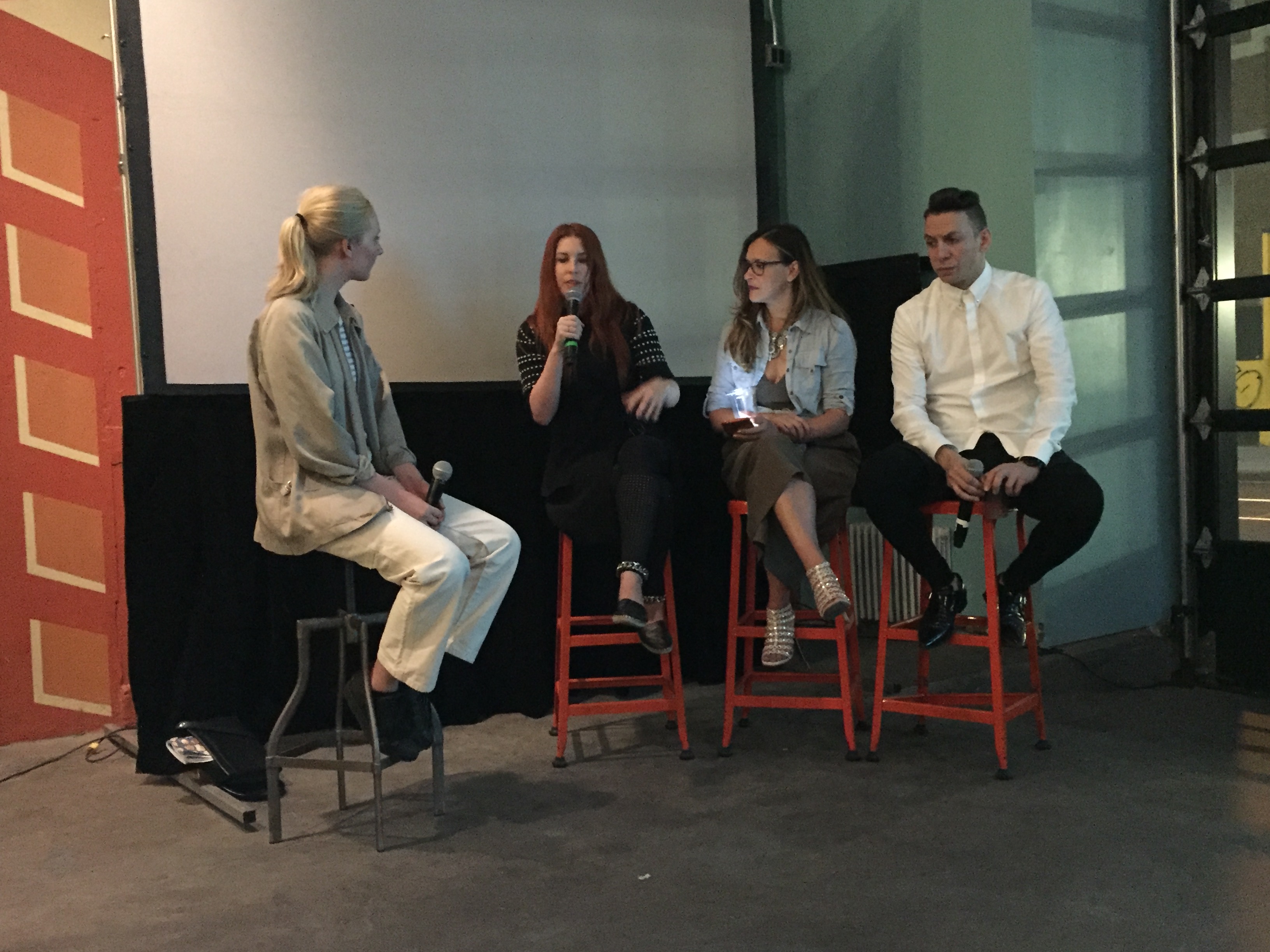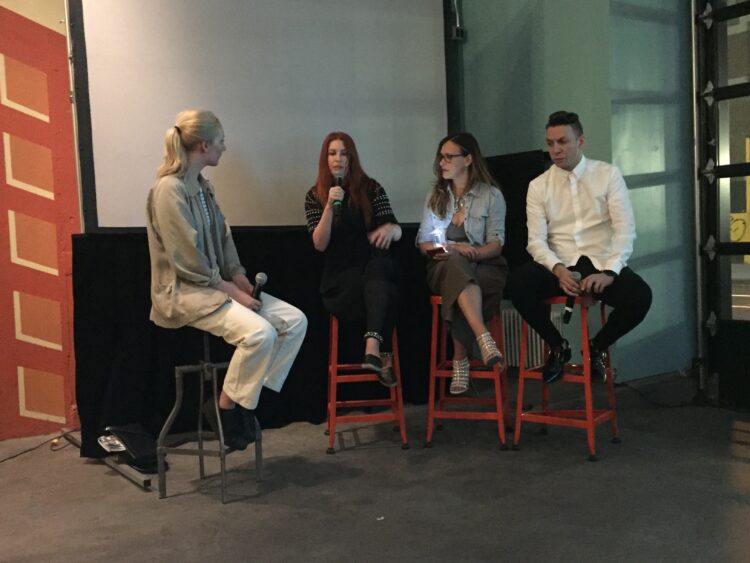
Young professionals and entrepreneurs clad in casual, trendy attire like button downs and jeans, maxi dresses and designer sneakers gathered in Soho for the Northside Innovation meetup recently.
To commemorate the start of fashion week, the event featured speakers with up-and-coming businesses in the fashion industry.
Madison Maxey and Bob Bland were each given five minutes to speak about their unique businesses.
Madison Maxey, who previously worked in tech at General Assembly and in fashion at Tommy Hilfiger, decided to combine these two experiences to form Loomia, a wearable technology company. Maxey stressed that her products don’t serve the purpose of a Fitbit. She has invented fabrics that conduct electricity in a patterned way, enabling the fabric to close or fuse together without the hassle of a sewing machine.
“For apparel, often fabric, zippers, buttons, these things act as enabling technologies,” Maxey explained.
Maxey and Loomia just announced collaboration with TopShop, which will feature a heated jacket, of which Maxey says more details will be announced soon.
Bob Bland is another entrepreneur with extensive experience in the fashion industry. Bland, who tried her hand at companies like Donna Karan New York and Marc by Marc Jacobs and had her own fashion line, stopped designing after the recession hurt her business.
She noticed a change in the economy, but not in the fashion industry, which she took as an “inflection point,” or a point of change in her career.
Bland then created Manufacture New York, a vertically integrated manufacturing hub that intersects fashion, sustainability, technology, which she says has helped create numerous jobs and has helped consumers care more about where the apparel they buy is produced.
Bland provided encouragement to today’s entrepreneurs, emphasizing that the fashion industry is still at a point of inflection. “This moment of 2016 is a moment of very big change,” she said.
Next, Racked.com fashion reporter, Eliza Brooke hosted a panel interviewing Alexa Adams, an activewear creative consultant and founder of Ohne Title, Robyn Moreno, executive editor of beauty and style at Latina Media Ventures, and Kariem Younes, freelance designer for Michael Kors, Calvin Klein and Lexdra. The panel discussed how technology is changing the industry and their predictions for the future.
Adams stressed the importance of practicality when creating fashion tech products.
“Think about the product first and how you make the product,” she said.
Adams said that while aesthetics are still important, they should be considered second.
“Working on something new, and creating a new design is very much appreciated,” she added.
The panelists all agreed that the consumer is the deciding factor for future fashion tech products. The modern consumer prioritizes quality, customization and transparency of the production process, Adams said.
Both Adams and Younes feel that in the future, companies will shift to reshoring, a method in which small factories operate in each country where a product is sold to create a localized product and reduce shipping costs.
The panel also discussed the significance of the “Athleisure” style and concluded that its practicality and versatility make it a long-lasting trend.
“You can be comfortable and still look really good,” Younes explained.
Moreno predicts that online fit guides will dominate the future fashion industry, because they combine everything a consumer wants, from transparency to customization.
“It becomes more empowering, which I think is fun to watch,” she said.
The overall takeaway from this talk is how function—a word once foreign to the fashion industry—is now an essential aspect for any profitable business to incorporate.
“It’s not just about aesthetics,” Adams said. “It’s about how form and function work together.”



